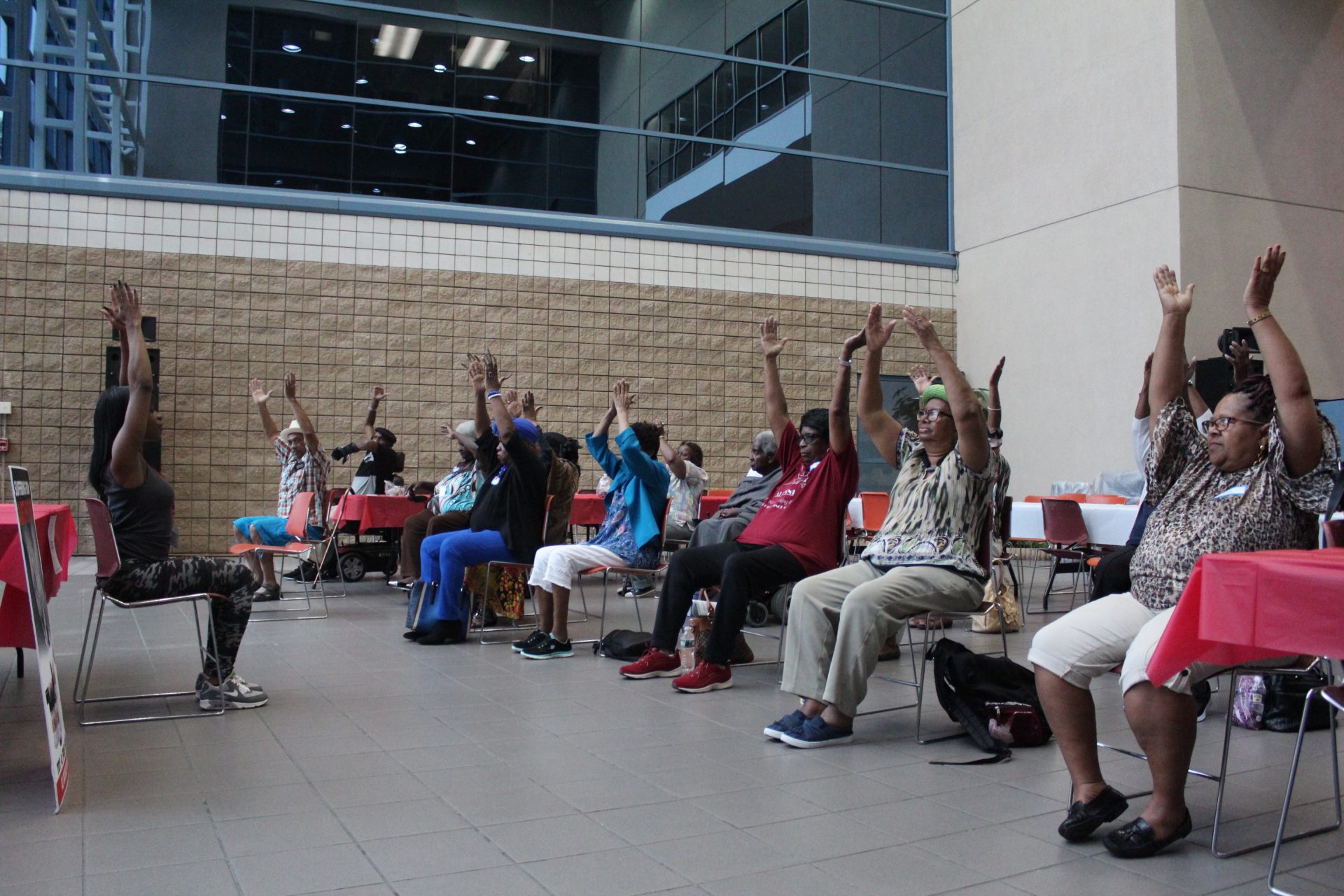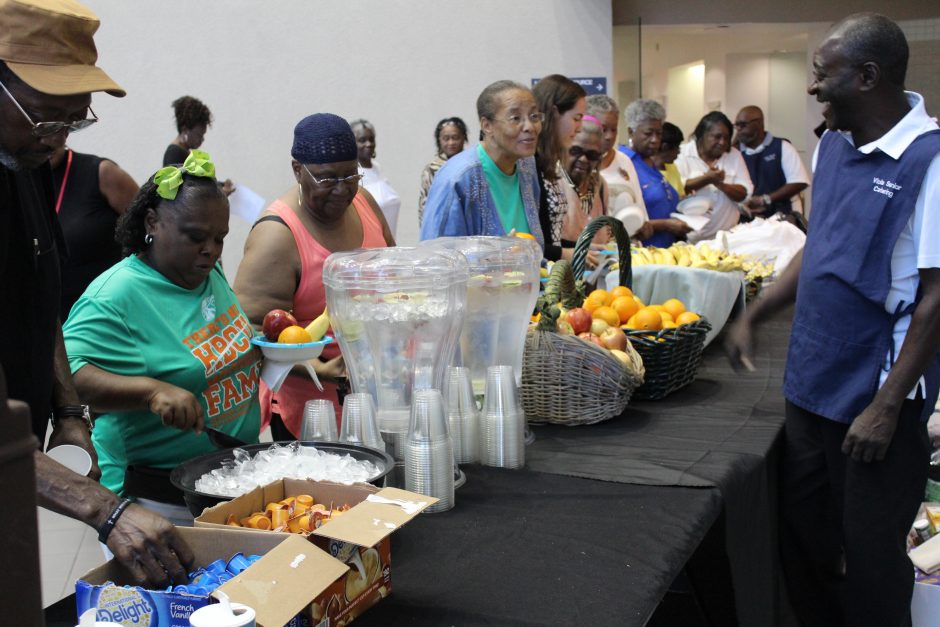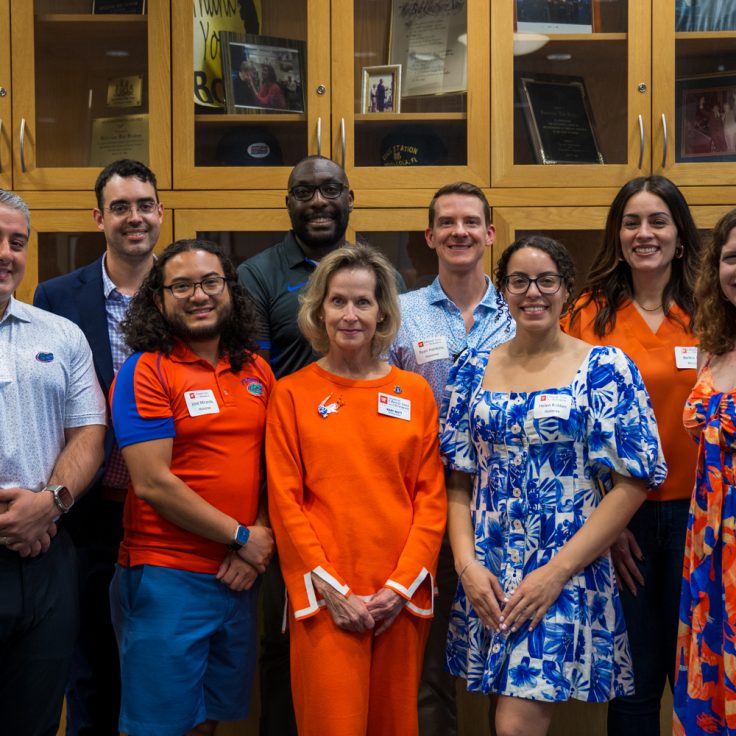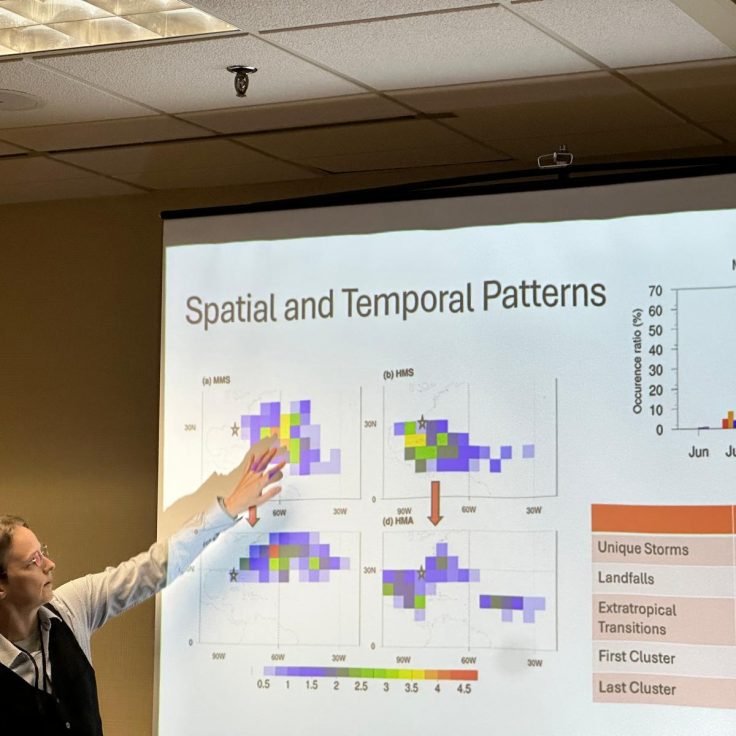
Golden Years
New Program Looks to Improve Lives of Seniors in Need
The demographics of the United States are changing, with more people aging into what should be their golden years. But the reality is more complicated: Older Americans increasingly face issues such as social isolation and food scarcity. A new UF program is looking to address these problems in underserved communities and improve seniors’ health in the process.
Led by DR. CAROLYN TUCKER (opens in new tab), the Health-Smart Holistic Health and Wellness Centers Program provides resources that empower participants to improve their own mental, physical and spiritual health.
Tucker, a professor of psychology and the UF Florida Blue Endowed Chair in Health Disparities Research, was motivated by personal experience to launch the program. She grew up in a poor, rural black community and saw firsthand how these challenges plagued the health of seniors. She even faced food insecurity — a lack of consistent access to nutritious food — in her own childhood home. Now equipped with the expertise needed to tackle these problems, Tucker is determined to make a difference in the lives of those dealing with them today.
Supported by The Humana Foundation (opens in new tab), the program takes a wide-ranging, holistic approach to improving the health of seniors, featuring church-based food pantries, insurance consultation, smartphone training for seniors, an app that helps seniors access food and social connection and more.
Because of the coronavirus crisis, much of the work must currently be conducted virtually — but the social connection the program fosters is all the more important in these times.
The Health-Smart Holistic Health and Wellness Centers Program has so far focused on assisting underserved communities in Jacksonville, where the senior poverty rate is more than double the national average. Its initiatives have been implemented at 10 predominantly black churches, two UF-Health affiliated health care centers and three senior centers.

While social isolation and food scarcity among seniors might seem like distinct concerns, Tucker believes they stem from the same root causes. Economic inequality, environmental injustice such as a lack of reliable public transportation, limited support services and other social determinants of health all bar seniors in underserved neighborhoods from social connection and nutrition. These troubles can in turn lead to poor mental and physical health, including obesity, diabetes, depression and stress.
“Many individuals — particularly seniors with low incomes — often do not have their physical and mental health needs met,” she said.
The program counts among its partners not only major organizations such as UF Health-Jacksonville, the Jacksonville Urban League, Feeding Northeast Florida and JAX ASCENT, but also black churches and community members in the area of Jacksonville hardest hit by poverty. To effectively take on social isolation and food insecurity, it was essential to engage those living these crises every day — not only because they have the most direct knowledge, but because Tucker counts on these partners to implement and sustain the programs.
“I knew that the best way to determine how to tackle food insecurity among mostly black seniors was to consult and partner with the true experts on these issues — the seniors in the target black communities and the leaders in these communities, including pastors,” Tucker said.
It’s too soon to draw conclusions from the program, but data from an early group of participants showed that they felt less lonely and stressed, ate more fruits and vegetables, forged new social connections and made new friends. Testimonials from seniors have also shown positive feelings about the changes the program has made in their lives.
Looking ahead, Tucker hopes that community leaders in Jacksonville and beyond will see the program as a model for improving the lives of seniors. While the program focuses on the elder members of the community, she wants to remind people that these issues could very well be relevant to them one day.
“An impetus for eliminating social isolation and food insecurity among seniors in particular can be found in the words of my grandfather,” Tucker said. “If you live long enough, one day you will get old.”


